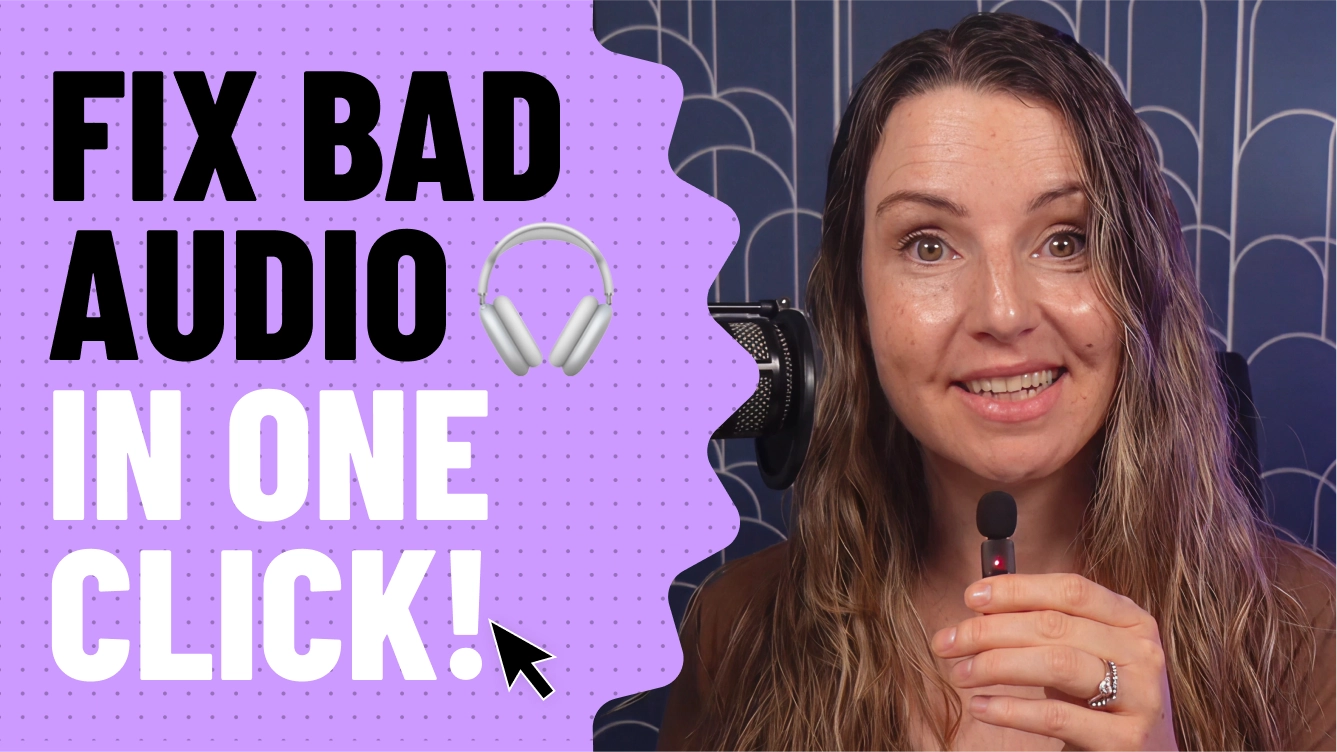If you’ve ever edited an audio track, you probably know that it’s standard practice to “clean up” people’s speech a little bit: delete any stray “likes” or “ums,” and maybe do some cutting and stitching to make sure ideas are expressed clearly. We want our listeners to be able to follow the conversation easily, the thought goes, so they should hear the tightest possible version of a conversation or argument.
But when I mention this practice to Chaya Goldstein-Schuff, she shakes her head.
“When you said that, like, ‘clean up someone's speech,’ like I, I, I felt this punch in the gut because… the way someone communicates is really inherent to who a person is,” she says. Chaya is a ASHA certified speech-language pathologist, and also a person who stutters. And the way she sees it, valorizing one type of communication as “clean” and therefore correct stigmatizes anyone with language differences, like stuttering. When we make podcasts and videos, we have the opportunity to literally give voice to all kinds of diversity — so why do we so often edit to a standard that doesn’t reflect the way people actually speak?
I sat down with Chaya via Zoom to talk more in-depth about how to make sure guests who stutter are comfortable throughout the recording process, and why representation for the community is so vital. She asked that her natural speech patterns and stutters be kept in the final piece, so that’s what you’ll be reading below.
The first thing to understand, Chaya says, is that stuttering is often uncomfortable for the person experiencing it. When you’re talking and then, all of a sudden, “there's this little sort of glitchy moment,” she says, “the experience is that of a loss of control. And it's very natural to not want that. It's like if you trip, you're like, well, I'm, I'm gonna try not to do that again.” That visceral, physical feeling of discomfort can then be compounded by the people around that person, like parents, teachers, or peers trying to get them to “talk right,” expressing impatience, or even mocking a stutter.

It’s important to understand that “stuttering is not caused by anxiety or nerves,” Chaya says. “However, feeling anxious can exacerbate it. There are a lot of paradoxes in stuttering. The more you try not to stutter, the more you tend to stutter.” The desire to repress a stutter can also lead to behaviors like avoidance, where you replace a hard-to-say word with alternatives less likely to cause stuttering, or struggling, which involves involuntary movements like eye blinking or lip tremors.
All of this can put someone who stutters in a bind when they’re being interviewed. It’s the time when they least want to stutter — but the more they think about it, the more likely they are to start tripping over words. And while some people will disclose that they stutter right up front, others might not be ready for that.
Either way, if your guest does start stuttering during an interview, Chaya says, the best thing you can do is be patient. “Keep eye contact,” she says. “Wait until the person finishes their words. Even if it takes longer, try not to finish their words. You might think you're helping them. Probably not.”
Most people are uncomfortable about being called out for being different, she continues, so pointing out a stutter, even to give them an opportunity to try the sentence again, may not be the best idea. It could heighten their anxiety, leading to more stuttering, but even if it doesn’t, it reinforces the idea that the way they talk is wrong and bad. If they want to ask for a re-take, they can say so; if they’re satisfied with how they expressed themselves, maybe you can be, too.
It really comes down to individual preference, Chaya stresses. Some people might actually want the full nip-tuck in the editing room, while others may feel that it’s important to let their true voice be heard, in all of its imperfect or unusual glory.
She herself has confronted this issue firsthand many times while cohosting the podcast Stutter Talk. “I stutter a whole lot more on the podcast ‘cause my anxiety's higher,” Chaya notes. “But I will never edit a honest moment of stuttering of mine, and I'll definitely never edit a person who stutters, ever, unless they specifically ask.”
“I once had a long and ugly stutter on an episode,” she continues. “I was talking to John He-eh-eh-eh-eh-eh, Hendrickson, from The Atlantic, who interviewed Joe Biden. He came out with a fantastic book all about stuttering. And I'm talking about the word Atlantic, and I got into this long, prolonged moment of stuttering. I felt the shame overtake me.”
Chaya was able to put that aside and finish their conversation, she says, but afterwards, “Oh, I wanted to edit that stutter out. And I had to have an internal reckoning.” Because if she did, of course, no one would know. They’d never hear it. They wouldn’t notice its absence.
But also, they’d never hear it. And someone who sometimes experiences that same “long, ugly” stutter would never have the opportunity to hear someone speak that way and recover themselves. They’d never have the opportunity to hear a voice like theirs being respected and listened to in the way it deserves.
“What message am I truly sending to the world?” Chaya asked herself as she decided what to do. “I want to actually stand true to the values of authenticity and expression, and celebrating vocal diversity. And, and, really saying: your voice is accepted and beautiful as is.”






%20(1).JPG)


































